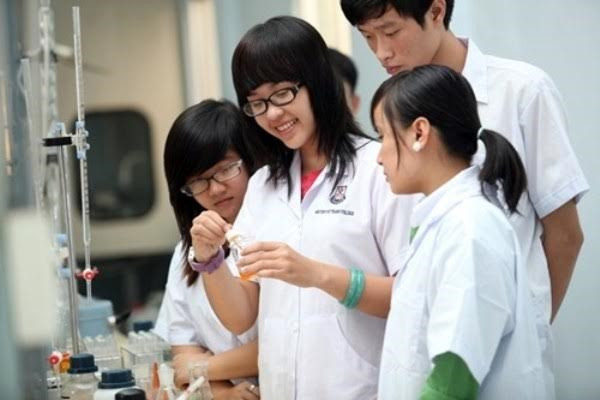 About 15-20 groups of young researchers are expected to be developed in each field by 2025 (Photo: Ministry of Science and Technology)
About 15-20 groups of young researchers are expected to be developed in each field by 2025 (Photo: Ministry of Science and Technology)Hanoi (VNA) – Vietnam is set to enhance bilateral and multilateralcooperation to step up research activities in basic sciences, according to aprogramme for basic sciences development between 2017 and 2025.
The programme, recently approved by the PrimeMinister, focuses on chemistry, life science, earth science, and marinescience.
It aims to create a contingent of highlyqualified scientists to help align scientific personnel training withinternational standards. It looks to develop 15-20 groups of young researchersin each field by 2025 so as to speed up the formation of research universities.
The programme targets a higher stature forVietnam’s sciences in the region and the world, with some fields expected torank third or fourth in ASEAN by 2025.
The number of scientific studies published oninternational prestigious magazines listed in SCOPUS database is hoped toincrease by 20-25 percent (10-15 percent in terms of marine science) each yearon average.
To carry out the plan, the State will assignspecialised science-technology organisations to conduct scientific research tocreate products that can be used in manufacturing and daily activities.
To improve the basic sciences research capacityat tertiary educational institutions, investment will be poured into keylaboratories in each field and research groups. While research tasks will befarmed out to young scientists, high school and universities students who winprizes at national and international competitions will also be honoured.
Vietnam will boost cooperation with the RussianFoundation for Basic Research and countries with developed basic sciences inEast Asia, the EU and North America.
In multilateral cooperation, it will fosterlinks in UNESCO’s programmes such as the International Basic SciencesProgramme, the Man and the Biosphere Programme, the IntergovernmentalOceanographic Commission, the International Hydrological Programme, and theInternational Geoscience and Geoparks Programme.-VNA





























